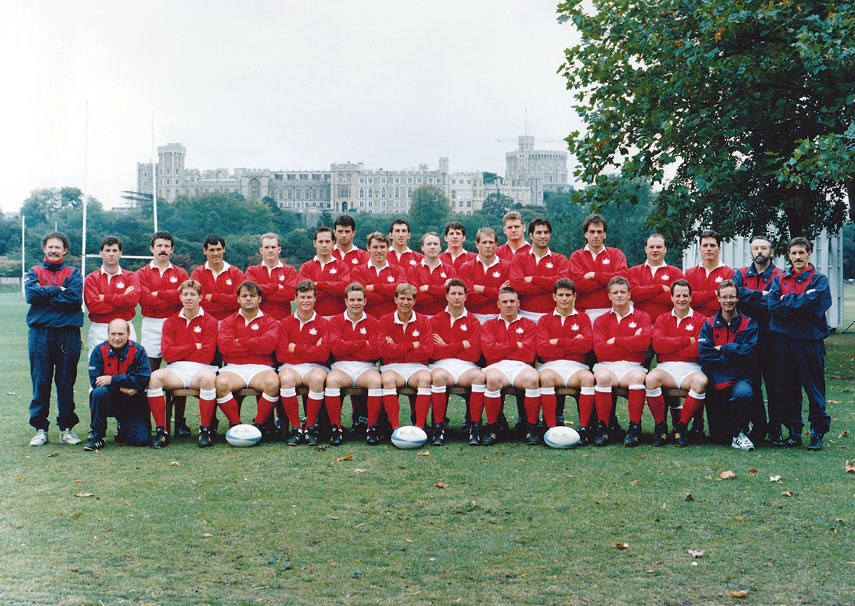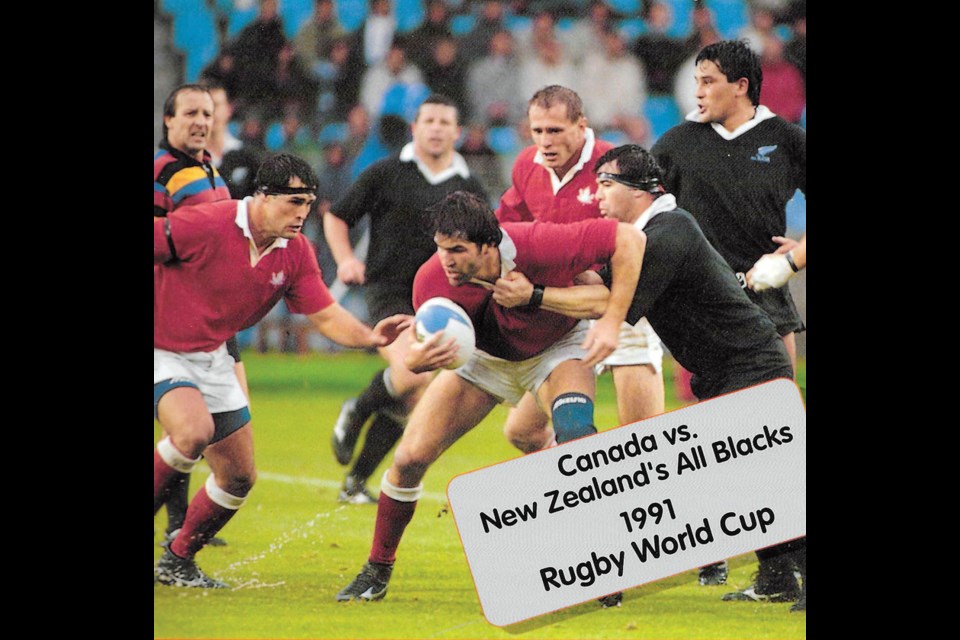It’s a minor miracle that David Speirs was even able to jog during the 1991 Rugby World Cup, let alone help push the Canadian men to the best finish in the program’s history.
And now Speirs, the longtime rugby coach and athletic director at West Vancouver’s Collingwood School, is headed to the B.C. Sports Hall of Fame, class of 2018, with the rest of his teammates from the squad that smashed the rugby world in the mouth some 26 years ago.
The Oakville, Ont. native moved to British Columbia in 1988, the same year he gained his first international cap with the national team after spending five years working his way through the program.
“Considering I’d put in all that time and had waited a long time to get my first cap, it was a big moment,” said Speirs about his appearance in an international match against the United States. “But we lost, so it was bittersweet to say the least.”
Disaster struck, however, one year later when he blew out his right ACL playing for Team BC against the vaunted New Zealand All Blacks. He spent a year rehabbing to get back on the field for Canada, only to experience more heartbreak.
“Three games into my comeback in ’90 I blew my left ACL,” he said. With calamities piling up, Speirs refused to quit. He was determined to get back in time for the 1991 World Cup.
“I was so focused. Nothing would stop me,” he said. He made it. Barely.
“For me it was just like two years of unhappiness, rehabbing, working my ass off,” he said. “All that hard work that I had done by myself – the physio, just running by myself and working by myself and not being with the guys – it just paid off. Basically I don’t think there was anybody happier to be there than me.”

The Canadians were drawn into a pool with Fiji, Romania, and France, who were co-hosting the tournament along with England. According to Speirs, no one gave the Canadians much of a chance, the accepted wisdom being that France would go through with Fiji and Romania battling for the second playoff spot.
“I think we were confident, but no one else was confident that we would do well,” said Speirs. “We played Fiji right off the bat, and when we beat them it was like, ‘OK, this is on.’” Canada knocked off Fiji 13-3, and then continued to roll with a 19-11 win over Romania. That was good enough – they were off to the quarterfinals. They still had a date against France on their home turf. They didn’t win it, but they came darn close. The final score was 19-13 for the hosts.
“Everybody was expecting that France would kill Canada,” said Speirs. “That didn’t happen. All of a sudden people were like, ‘Whoa – Canada is actually good.’ I think most of us would take great satisfaction out of the fact that we surprised all these people who didn’t know how good we’d be.”
Finally it was the quarterfinals against the legendary New Zealand All Blacks, the defending World Cup champs. Again the pundits predicted a slaughter, and again the Canadians came up big.
“We had a nothing-to-lose attitude,” said Speirs. Our pack was bigger than the New Zealand pack, the guys I played with were huge. … Let’s just take them on and see how it goes.”
They didn’t, however, pull out a miracle victory. New Zealand took the lead and held on, though Canada refused to back down, scoring two late tries to make the score 29-13 for the All Blacks.
“They were clinical in how they finished. That was the difference,” said Speirs. “They scored some brilliant tries. … We got close a few times but we came away with nothing.”
They didn’t win the game, but they won a lot of fans that day.
“We did a lap of honour with the whole stadium cheering,” said Speirs. “The neutral fans in the stadium wanted Canada to win just because they liked how aggressive we were and how we didn’t back down from the All Blacks. There were a few times when we were shoving them backwards in the scrum. It was a good performance. I think people were thinking that Canada was just a rugby minnow, but we proved that we could play with people.”
No Canadian team before or since has reached the quarterfinals at a men’s Rugby World Cup. The 1991 result, however, was no fluke, said Speirs. Most of the players on the team – including John Lecky, who also moved to the North Shore and has been a longtime resident – hailed from B.C., forming a tough, tight and talented group.
“That camaraderie helped a lot. The fact that people knew and liked each other … if somebody got thugged in a game, got cheap-shotted, everybody was there,” said Speirs. “Some of the guys that were on that team were exceptional. Just exceptional, world class people. That’s the difference. The guys were athletic freaks. It was across the board. We had huge forwards, we had big backs that were fast. It was just the perfect group of guys who had worked for a long time and it happened to all come together.”
The New Zealand game was the last one Speirs ever played for Team Canada, his goals reached and his knees shot.
“I basically came back and stopped playing right after the quarterfinal,” he said. “This is as great as it’s ever going to get. I’ll just call it a day.”
He moved to the North Shore in 1993, caught on at Collingwood and has been guiding young athletes there ever since.
A couple of weeks ago he was surprised by an email from his old team captain. The whole squad was going into the B.C. Sports Hall of Fame – the first rugby team enshrined there – and it was time for a reunion for the announcement. Earlier this week 14 of the players gathered to celebrate the announcement – they’ll officially go into the hall May 31, 2018, along with other stars such as former Canuck Cliff Ronning, skier Marielle Thompson, writer Tony Gallagher and pitcher Ryan Dempster, a Gibsons native who once starred for the North Shore Twins.
When he saw his teammates for the announcement, it was just like old times, said Speirs.
“Everyone was thrilled,” he said. “There was a bunch of guys I haven’t seen in a long time. … That was probably the best part.”



